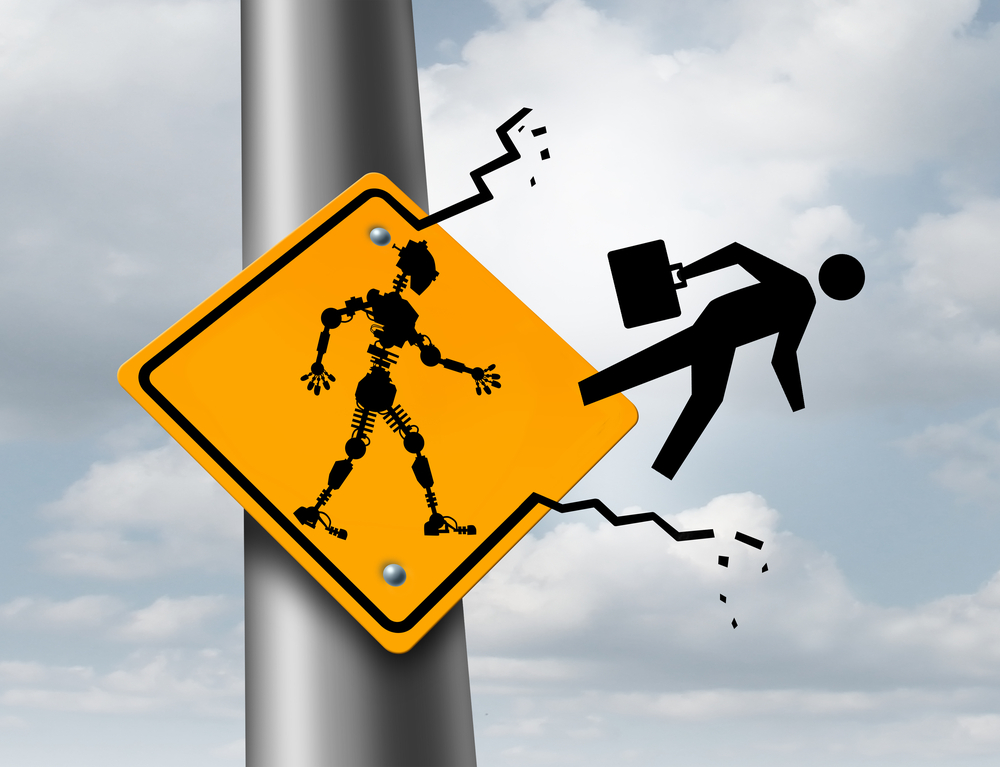There has been a lot of talk about how robots will take away a lot of jobs from humans. Advanced robotics, combined with artificial intelligence, can make plenty of job types obsolete over time. That does not mean all employees will be replaced, even though some sectors will be more prone to these changes than others.
#7 Statistical Assistants
One of the primary sectors that will be affected by AI robots is the statistical industry. It is true computers and software are capable of completing calculations and statistical analysis at a far quicker pace than humans. Experts predict more than 10% of all current jobs in this industry will be gone by 2024. With most of these tasks being automated already, it is only a matter of time until the human element is phased out.
#6 Travel Agents
Although it is always beneficial to deal with a human while looking to book travel accommodations, things are changing rapidly in this industry as well. Online travel agencies are gaining popularity and this trend will only grow more obvious as time progresses. Brick-and-mortar travel agencies are slowly fading away, and there will be close to 10,000 fewer travel agents in a few years from now.
#5 Correspondence Clerks
It may sound strange to think correspondence clerks will become obsolete. Recent advancements in technology and computer software are on the brink of making this type job type nearly obsolete in the next decade. Combined with deep learning and more innovation in the AI world, virtual assistants will slowly take over from their human counterparts.
#4 Meter Readers
In this day and age of technology and automation, it is strange to think being a “meter reader” is still a job. Nearly every utility company around the globe has a vast team of meter readers, who travel from location to location to determine electricity, water, and gas usage.
Over the coming years, these jobs will be phased out, though. Utility companies are upgrading their infrastructure, resulting in less need for meters to be read manually. With computers monitoring meters remotely, utility company employees will fall on hard times over the next few years. In fact, 1 in 5 meter readers may lose their job by 2025.
#3 Telephone Operators
Anyone who has ever worked in a call center will agree the job becomes more and more automated. Telephone operators are on the way out, which can be mostly attributed to artificial intelligence. Voice recognition technology allows users to have calls connected to a virtual assistant without human intervention. Some experts predict job losses in this sector can become as high as 40%.
#2 Postal Service Workers
The US Postal Service is constantly low on employees, however that trend is about to change as robots will start to take over in the mail sorting centers. Even now, postal service clerks are being replaced by automatic machines. Furthermore, Swiss Post is testing Starship Technologies robots that will deliver your mail.
Contrary to popular belief USPS is not funded by our tax dollars, instead it is self sufficient by selling stamps and postage. It was making billions in profit in 2005 and 2006, the government took notice and congress passed a bill requiring USPS to prefund its future retiree benefits. That cost them over $5 billion a year which was one of the main reasons USPS started bleeding money.
Furthermore, the recession did not help the case at all and USPS was quite unprofitable for a few years. However, a few years later and USPS returned back to the green. While it may be difficult for robots to replace mail carriers, the introduction of automation to USPS’ mail sorting centers will undoubtedly make the service much more efficient. For instance, for $22,000 a sorting center could purchase the Baxter robot, which is an automation machine meant for all kinds of tasks, saving them thousands in payroll.
#1 Truck Drivers
While both taxi and uber drivers are also at risk of being replaced by autonomous vehicles, truck drivers are at a serious roadblock. It is believed that 1.7 million american truckers could be replaced by robots in the next 10 years. For example, Otto, a self-driving truck company started by former Google engineers was bought by Uber last year. These companies are already putting their autonomous vehicles on the road and it is only a mater of a few years before we start seeing more and more driver less cars.
If you liked this article, follow us on Twitter @themerklenews and make sure to subscribe to our newsletter to receive the latest bitcoin, cryptocurrency, and technology news.

